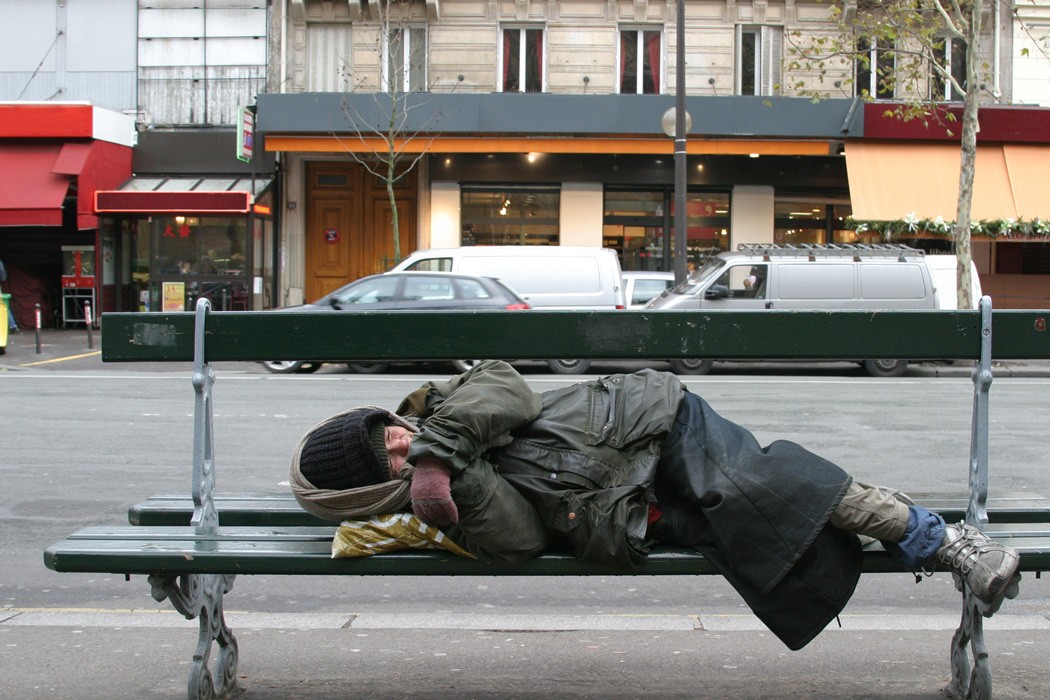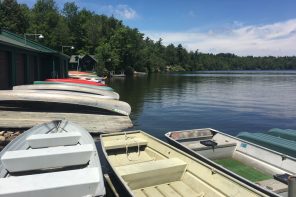We walk down block after block of houses. Post-war cinderblock GI starter homes. 1930s Spanish-style bungalows. Mid-century duplexes. And here and there, the bones of one of these houses totally transformed into a McMansion that is straining at the boundaries of its tiny plot of land. There’s not enough room on this peninsula. We are crowded in by San Francisco Bay on the east, and the mountains and the Pacific to the west.
I dare to glance at the flier for a house that’s on the market. The sellers are asking nearly a million dollars for a home that hasn’t had any work done on it since the 1980s, the kitchen all dark wood and mauve formica. It’s on a busy corner, and only a chain link fence separates the yard from the traffic. There are no shade trees. A mile further, there’s a home that’s offered at over a million. Two bedrooms, one bath, and flat, undeveloped yard. Decent schools. Marble countertops in its galley kitchen.
Our rent is up nearly 25% since we moved here for my husband’s tech job. He makes great money. But his salary can’t keep up with this market. We don’t know if we can stay, how quickly our kids will grow too big to cram into rental house rooms, or how soon our rent will rise too high to make this work. Houses sell above asking price around here, within a week or so, often to a buyer who can offer the entire cost in cash. I feel like we’re hanging on to this place by the very edge of our fingernails.
There’s a house with a beautifully redone garden, all pavers and drought-resistant plants. A couple is laughing and drinking wine in the brightly lit living room. I walk over a creek, dry, always dry here, and under the arch of a bougainvillea that has jumped from another home’s hedge to the power pole on the other side of the walkway. The windows of the next house are lit, too. Every room has at least two bunk beds: a house packed with immigrant workers, the men who trim our orange trees and meticulously tamp the ground before they place our pavers, and do the renovation work. I wonder how long their landlord will use it for this purpose. And how far the workers will have to drive to find their next jobs.
I maneuver the stroller around a corner, down a stretch of sidewalk narrowed by a hedge that is several decades overgrown. A woman with her entire life loaded onto a shopping cart comes toward me. Before we meet, she apologizes in broken English for taking up too much space, as if the baby in the pricey jogging stroller is more deserving of the sidewalk than her.
It’s dark now. The city’s cost-saving street lights glow orange but barely illuminate the sidewalks. We have to cross a badly-lit major intersection where, last week, a woman in a SUV hurrying home at night nearly hit me and the stroller when she was turning left. I’m extra careful, looking the right-turning Tesla driver hard in the eye as I enter intersection.
Four more blocks, quieter now: past houses with rose gardens, jasmine thickets, and orange blossoms in the front yards; past my favorite block of a tract of mid-century houses with low slung roofs and large windows. Through the big city park, with a few late evening soccer pick-up games still going, even though it’s nearly 9:00 p.m.
One block from home. In the darkest corner of the community center parking lot, there’s just one car left: an older model, two-door sedan, dented and dusty. I walk past and notice: the seats are reclined, and two people are curled as best they can into the car, their bed for the night. Clothes and papers and wrappers are twisted in the back seat.
Almost home, home being wherever my family is blessed to sleep. That’s the best I can do for now, holding onto the edge of this place. We have a tighter grasp on living here than some people, a place of privilege, even when it feels like living in this town is slipping from our financial grasp. I crumple the real estate fliers and throw them into the stroller’s undercarriage.




